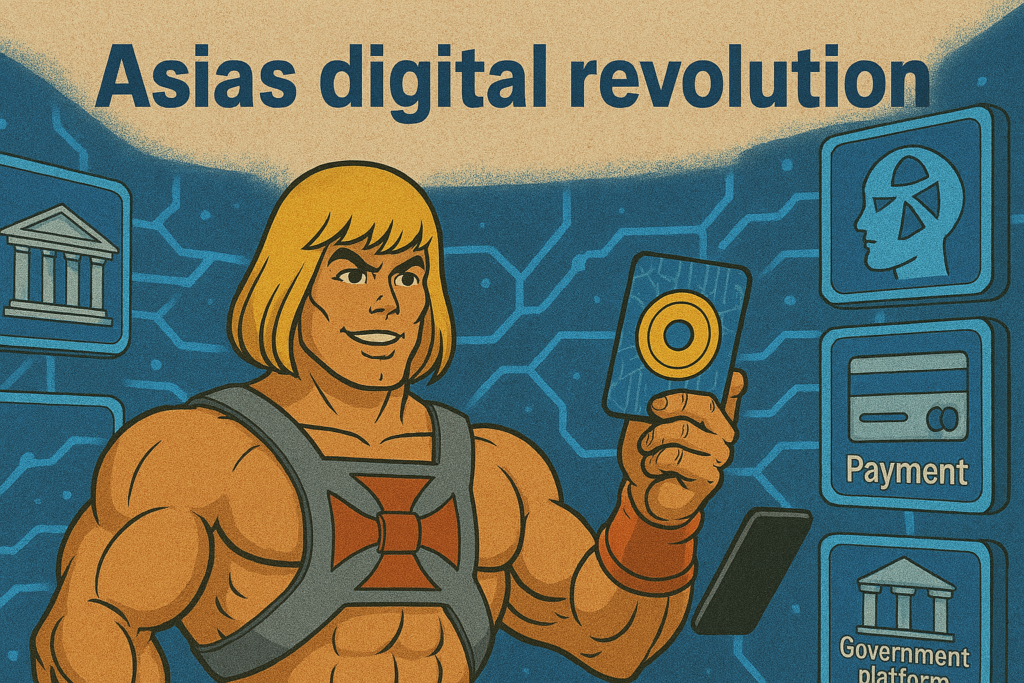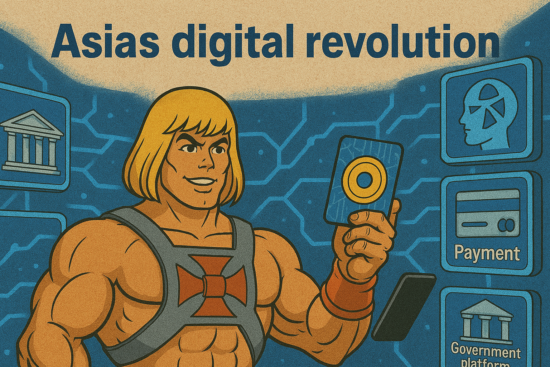
Just sharing some personal reflections here.This thought actually came from a LinkedIn post I read last week, and it sparked a bit of a deep dive on my end. Tokenisation is something I’ve been trying to understand better — what I’m sharing here is a mix of my own learning, research, and thoughts. I’m not an expert, just someone curious and trying to connect the dots.
In Asia’s fast-moving digital economy, consumers juggle multiple cards, apps, and logins—banking, transit, loyalty programs, and government services. But what if a single universal token, secured by AI, could replace them all? From India’s Aadhaar to Singapore’s Smart Nation, Asia is already pioneering this future.
The Vision: One Token for Everything
A universal token would act as a digital passport for all transactions:
- Payments: Replace credit/debit cards with a tokenized wallet (e.g., Alipay, PayNow).
- Transit: Use your phone or wearable for metro, buses, and tolls (like Hong Kong’s Octopus Card).
- Loyalty & Retail: Earn and redeem points seamlessly across brands (e.g., Rakuten Super Points).
- Government ID & Services: Access healthcare, voting, and subsidies with a single login (India’s Aadhaar, Thailand’s Digital ID).
- Grants & Welfare: AI-verified tokens could reduce fraud in social disbursements (e.g., India’s DBT).
Asia’s Leading Examples
1. Digital Identity: The Foundation
- India’s Aadhaar (1.3B+ users) enables biometric authentication for banking, SIM cards, and welfare.
- Singapore’s Singpass lets citizens access 1,400+ services—from taxes to private banking—with one login.
- Thailand’s National Digital ID plans to integrate with banking and e-government services by 2025.
2. Payments & Transit: Tokens in Action
- Hong Kong’s Octopus Card—one of the world’s first universal smart cards—works for transit, retail, and even school attendance. Now expanding to mobile wallets.
- China’s Digital Yuan (e-CNY) tests programmable money for subsidies, smart contracts, and cross-border trade.
- Japan’s Suica & Mobile Wallets (Apple Pay, Google Pay) allow seamless train rides and payments via smartphones.
3. AI & Security: Making It Trustworthy
- Ant Group’s AI-powered fraud detection analyzes billions of Alipay transactions in real-time.
- India’s UPI with AI-based anti-fraud (e.g., NPCI’s Fraud Risk Management) reduces payment scams.
- Singapore’s MyInfo uses AI-driven KYC (Know Your Customer) to auto-fill forms securely.
4. Cross-Industry Loyalty & Beyond
- Rakuten Super Points (Japan): A universal loyalty currency accepted across e-commerce, travel, and brick-and-mortar stores.
- Starbucks Odyssey (Singapore, Japan): NFT-based rewards program allowing tokenized memberships.
- South Korea’s Zero Pay: Government-backed QR payments with integrated merchant discounts.
Challenges & the Road Ahead
While Asia leads in adoption, hurdles remain:
- Privacy vs. Convenience: Balancing Aadhaar-like scale with GDPR-style protections.
- Interoperability: Can India’s UPI, Singapore’s PayNow, and China’s e-CNY work together?
- AI Governance: Preventing bias in biometrics (e.g., facial recognition errors) and ensuring ethical AI.
The Future: A Unified Asian Digital Ecosystem?
The pieces are in place—digital identity, tokenized payments, AI-driven security, and cross-industry loyalty. The next step? A pan-Asian framework where a Malaysian tourist can use their home e-wallet in Tokyo’s subway, redeem loyalty points in Bangkok, and verify their ID for a hotel check-in—all with one token.
Call to Action:
- Which Asian country do you think will fully achieve this first?
- Would you trust an AI-managed universal token?
Let’s discuss in the comments! #DigitalIdentity #AI #Fintech #SmartCities#banks#mastercard#Visa#Stripe#paypal
